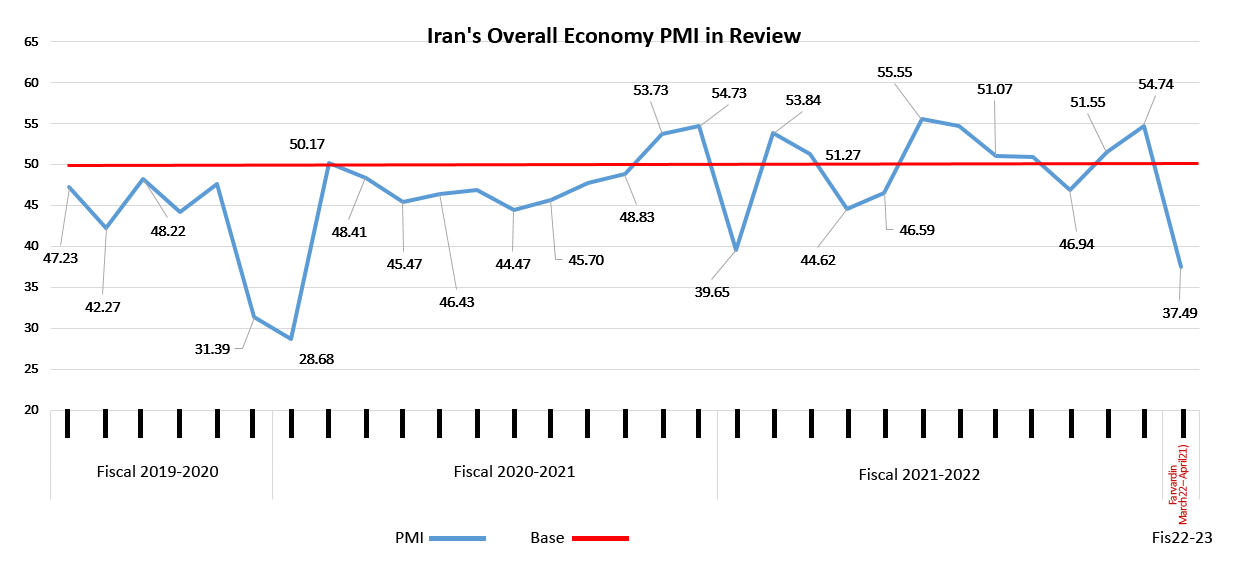Iran’s new PMI data for the fiscal month of Farvardin (March 21 – April 20), released by the country’s Chamber of Commerce suggests a sharp fall in the figure partly due to reducing purchasing power and increasing production costs.
The Purchasing Managers’ Index, known by its Farsi acronym Shamekh, for Iran’s overall economy has declined from 54.74 in the previous month to settle at 37.49 in Farvardin.
The Statistics and Economic Analysis Center of Iran Chamber of Commerce, Industries, Mines and Agriculture, the sponsor and coordinator of the survey, announces the whole economy PMI data in a report every month.
The headline PMI is a number from 0 to 100, such that over 50 shows an expansion of the economy when compared with the previous month. A PMI reading under 50 indicates contraction and a reading of 50 implies no change.
PMI is an index of the prevailing direction of economic trends, aiming to provide information about business conditions to company directors, analysts and purchasing managers.

Click on the image for better view
Except for the “employment” index, all the rest main sub-indices were below the threshold in Farvardin. The “employment” sub-index improved from 44.82 in the previous month to 50.85 in the month under review.
A fall in monthly PMI in Farvardin – the first Iranian calendar month – is expected to happen every year due to two-week holidays in this month. However, the survey suggests that reducing purchasing power and increasing production costs also contributed to the major PMI fall this month.
The “business activities” sub-index posted one of its lowest over the past 24 months declining from 58.81 in the previous month to 28.52 in Farvardin.
The “new orders” sub-index also registered a two-year low figure (29.34) in the month under review. Apart from the long holidays, the low figure was largely due to reduced purchasing power caused by increased costs.
The "raw material inventory" sub-index (41.64) in Farvardin, recorded the lowest PMI reading over the past 17 months. Increasing prices of raw materials in the industry and construction sectors have affected this index more than other factors.